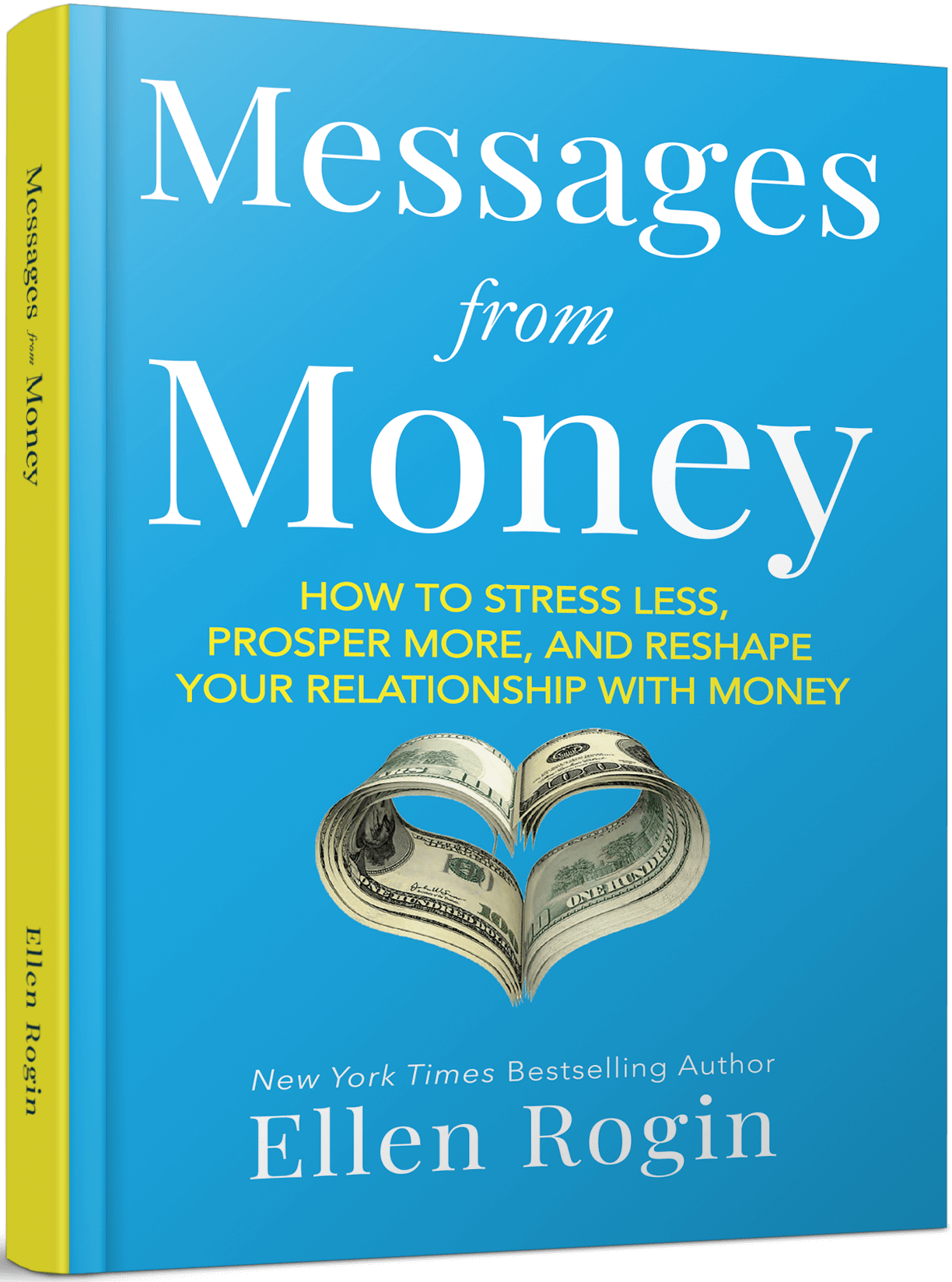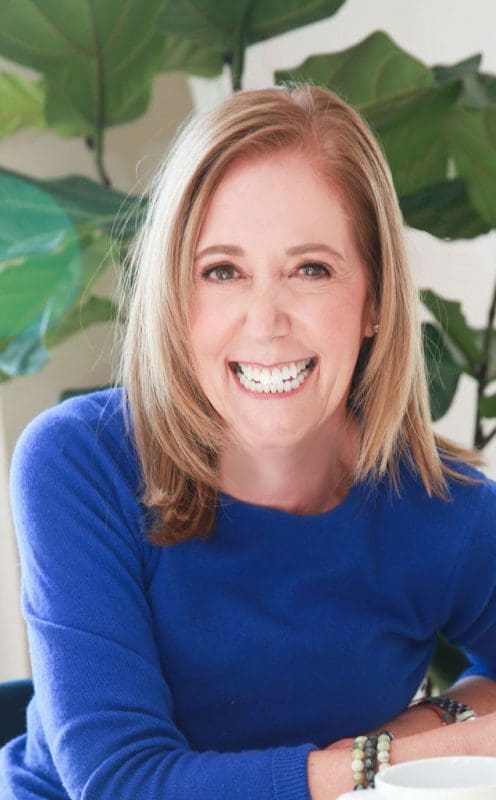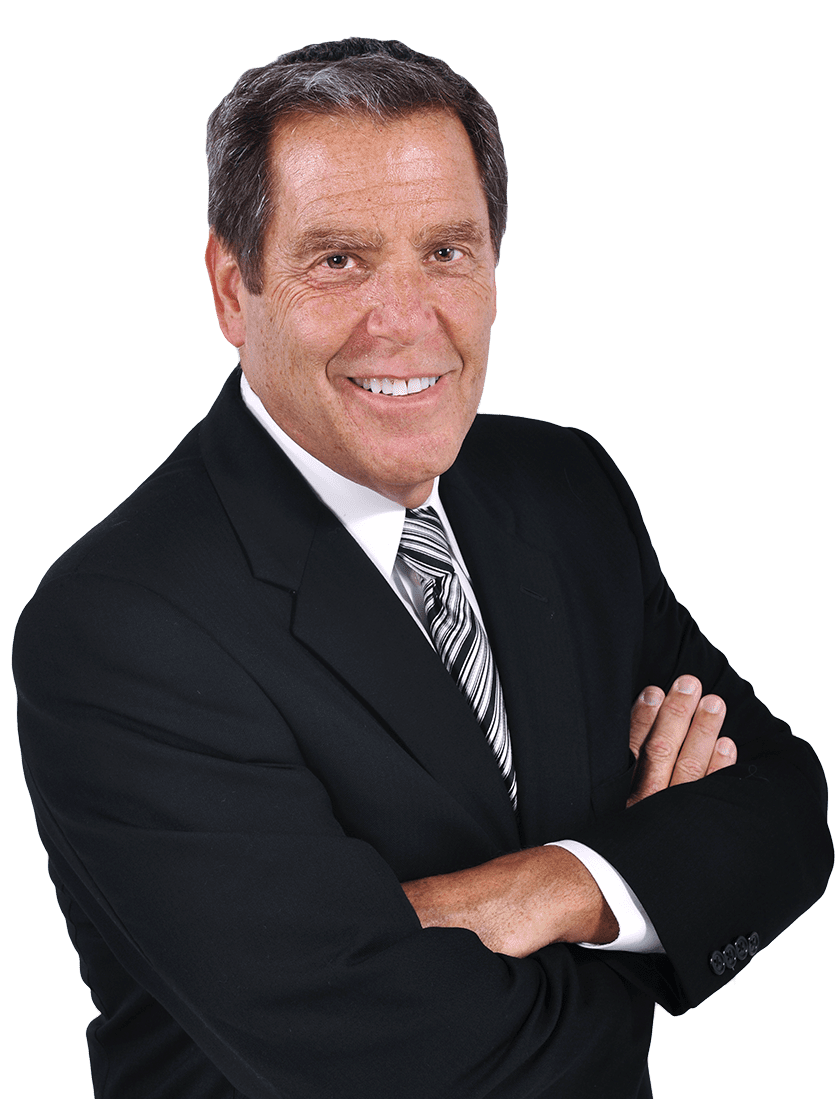Check Out Bill Cates’ NEW Top Advisor Podcast™
Interviews with Top Advisors for Top Advisors!
Top Advisor Podcast™
Ep. #50 – How Advisors Can Reverse a Client’s Negative Relationship with Money with Ellen Rogin, CPA, CFP®
To say that people have an emotional relationship with money would be an understatement!
While you may be a CFP, or a ChFC, or any number of the many certifications available in this industry, perhaps the most important thing you could do to serve your clients is obtain an PhD in psychology. (Smile)
Today, my featured guest and I are going to talk about some of the emotions both YOU and YOUR CLIENTS have around money – especially when the market and/or the economy are sagging or volatile.
Much has been written about the beliefs and emotions around the relationship with money that our clients bring with them, and its impact on the work we do.
That being said… YOUR beliefs and emotions around money will shape your thoughts, decisions, and ADVICE. For you and for your clients, these beliefs and emotions are often unconscious, but need to be considered in order to create the best possible plans and recommendations for your clients.
Your clients bring their money stress to you. How you receive that stress, how you handle your own money stress, and the energy you bring to youe client meetings can help you build the strongest possible client relationships.
In this episode, Referral Coach Bill Cates interviews Ellen Rogin CPA, CFP®, Abundance Activist, Financial Intuitive, and a New York Times best-selling author. This interview is an exploration of how your clients’ emotions and beliefs interact with your own emotions and beliefs – to either reduce or increase client stress.
Want More Top Advisor Podcast Episodes? CLICK HERE!
–
Bill and Ellen discuss:
- The biggest mistake advisors make during client meetings.
- A study that demonstrates that when a client is fearful about their money, their IQ goes down, along with their capacity to make intelligent decisions.
- The emotional aspects of people’s relationship with money, and how it affects both advisors and clients.
- Why a down or volatile market can be the best time for acquiring new clients.
- How most advisors stay on the surface with their clients when digging a little deeper will serve both the client and the advisor.
- Why advisors should regularly check in on clients’ fears and concerns to provide ongoing support and reassurance.
- Why advisors need to bring intentional energy to their client meetings.
- How advisors can thrive and grow their businesses during economic downturns.
- The benefits of practicing gratitude, such as lower stress, longer life, better health, and increased income.
- How your acts of generosity can reduce stress and attract more business.
- … And more!
Resources:
Connect With Bill Cates:
-
Show Transcript
Bill Cates: Welcome to the Top Advisor Podcast brought to you by ProudMouth’s Pod Rocket Academy. I’m your host, Bill Cates, creator of the Cates Academy for relationship marketing. In each episode, I interview one of our industry’s top performers, getting them to pass on their secrets to success to you so that you can impact more lives and generate more income. Now on to the show.
Welcome. Welcome. Before we get going, I wanna let you know about some free resources that I invite you to retrieve after you’ve listened to today’s interview, you’ll find checklists, guides, videos, and other tools. Simply go to referralcoach.com/resources. That’s referralcoach.com/resources, write it down unless you’re driving, of course. While you’re there, make sure you sign up for our weekly tips. We’re always sharing best practices, and we’ll notify you of our newest podcast interviews as they go live.
People have an emotional relationship with money would be an understatement. While you may be a CFP or a CHFC or any number of the many certifications available in this industry. Perhaps the most important thing you could do to serve your clients is to obtain a PhD in psychology. Today, my featured guest and I are going to talk about some of the emotions both you and your clients have around money especially when the market and or the economy are sagging or volatile.
Ellen Rogin has her own set of credentials in that she’s a CFP and a CPA. She’s the co author of the New York Times bestseller, Picture your Prosperity, Smart Money Moves to Turn Your Vision into Reality. And for those of you watching the video, I’m holding it up to the screen now. Very nice book, great book. In fact, as a former top producing financial advisor and founder of a wealth management firm, which she successfully sold, Ellen knows firsthand how to build a successful and profitable practice. She speaks internationally, consults to the financial services industry, and trains and consults with advisors to increase their influence, impact, and income. Ellen is a TEDx presenter, and her work has been quoted in such national publications as the New York Times, Money, Time.com and Forbes.com. She is a regular contributor to HorsesMouth and the host of HorsesMouth- Extraordinary Advisor Live cast. Ellen Rogin. Welcome to Top Advisor Podcast.
Ellen Rogin: I am so excited to be here. Thank you.
Bill: Well, I’ve been looking forward to this for a long time. Ellen, let’s start with this. You describe yourself as an abundance activist. And a phrase I saw on your website more than once is prosperity on purpose. Talk to us about those terms. What do you mean by those phrases and how did you come to this current work?
Ellen: Let me start with how I came to this current work. When I was an advisor, the thing that was always fascinating to me was people made decisions about money, how someone could have 1,000,000 of 1,000,000 of dollars and still be scared that they wouldn’t be okay. And that process was just so interesting to me and ultimately led to me leading to me to sell my firm.
And what I’m really driven to do now is have people reshape their relationship with money. And being an abundance activist, is about, using money as a force for good in the world. You know, we how we think and what we say about money makes a huge difference in our lives and not only can this, impact you as an advisor to be more successful in your practice, but you have the ability to really reshape how your clients are dealing with their money and how this impacts their family and their kids. And it goes well beyond managing the portfolios and giving them a great rate of return or making sure they’re protected with insurance. So that’s the abundance activist part. And the prosperity on purpose is that I do believe we’re, able to use our mind as a tool to create what we want in our lives. and that that’s really what can make the difference for people. And the on purpose part is what I found for me in my practice when I have my wealth management practice. And now with the work that I’m doing is the more I’m clear on my real purpose the more prosperity that flows into my life and the bigger impact I can make for others.
Bill: I can relate to what you said about having a lot of money and can still feel like maybe they don’t. I actually have plenty of money and I have anxiety around money. And it’s like, an old tape that just keeps playing, and I just have to turn the volume down. Right? I’ll never get rid of it. I probably am working longer than I need to because of that. I certainly could retire. So I just saying that I can really relate to that. And I suspect that, you know, most advisors probably don’t get to that level of a conversation, do they, with their clients, about their emotional response to money and relationship to money?
Ellen: I don’t even know that I had those deep conversations when I was an advisor. I was just really sensitive to it that we do we’re brought up with lots of, like you said, old tapes playing in the background. We develop our subconscious beliefs from the time we’re born to age seven is when most of those are formed with us, including our money beliefs. So for pretty much everyone, there’s stuff playing in the background, and some of it is super helpful, and some of it is less than excellent. And sometimes we say things that, support us, and sometimes they don’t. And, Bill, I hope it’s okay if I just point out one thing that I heard you say.
Bill: Sure.
Ellen: You said, I’m sure I’m never gonna get rid of this. Well, I think our words matter. And, in one second, I’ll explain a way that we’ve all been brought up knowing our words matter. And possibly if you said this is something I’m looking to get better at or I wanna feel more calm about intellectually, I know I’m okay. And I’d like to feel that way inside as well. It might be a little bit easier than I’m never gonna get rid of this. I hope it’s okay that I did that.
Bill: No. I appreciate that because I think it’s important for advisors to know that about themselves. I mean, gosh, their relationship to money somehow consciously or unconsciously colors how they talk to their clients. And then they probably see clients thinking funny, behaving funny, and maybe they just take it at face value and don’t, you know, go any deeper. I mean, I’m wondering I have questions prepared for you, but I’m I’m kinda riffing here a little bit. I’m wondering if advisors most of them just don’t feel comfortable in that space getting into the psychology at all or some do and some don’t. What’s your observation?
Ellen: Yeah. Some do and some don’t. I mean, there’s advisors now that one advisor I’m working with has been studying as a financial therapist, and there’s more and more advisors doing that. I think what would be a really great first step is for advisors to look at what their own beliefs are about money. I was, thinking back when I started as an advisor, I was always fascinated in this and started to really explore, like, well, what was money like growing up in my family? And how might that be impacting me now? And I grew up in a house where my dad went off to work and my mom stayed home. And as I got older, I started my own practice when I was in my late twenties, and I realized that I had this belief that It was my husband’s job to make money and further that I probably couldn’t even do it. Now I have lots of letters after my name. Right? Degrees, advanced degrees. Yet, I was walking around with this belief, like, oh, that’s Steven’s job. and I probably couldn’t even do it, which didn’t make any sense, because here’s the thing about what we believe. It’s just a thought we’ve thought over and over, and it doesn’t mean it’s true. So I think back well, if I hadn’t realized that I was operating under this belief and, like, pulled it from behind, you know, playing in the background to Oh, that’s Steven’s job, I probably would not have built a successful advisory practice because I would be unconscious to that.
Bill: Yeah. You believe it wasn’t possible, or it wouldn’t even occur to you that it was possible. And, yeah, you know, we can’t act and accord with our beliefs. It creates that cognitive dissonance. So we usually retreat from something that’s, you know, no. No. That’s not me. That’s not us. Right?
Ellen: Whether we’re aware of it or not, for sure.
Bill: Yeah. Yeah. I agree. Oh, the stories we tell ourselves, So, yeah, if there’s one thing we can count on, you know, when it comes to the the market, to the economy, is always changing. Right? Rarely predictable. We go through bull markets, bear markets, volatile markets, inflation, stagnation, interest rate hikes from the Fed. Some people know they should come and Cates they feel good. Some people, it makes people nervous. You know, it’s sometimes the news is good. Sometimes it’s worrisome. So there’s this emotional stuff. And we know that people, a lot of folks, are worried about money, and we know that people react more emotionally to a negative event, right, than a positive. We know that that’s true. So what do you what’s your advice for financial advisors, finance festivals around that, with themselves and with clients.
Ellen: I think it’s natural for advisors when things are are volatile or when clients are feeling worried to jump right into the analytical side of things. Let me show you what marks have done over the last 20 years. Let me show you that markets go up and down. let me run projections for you so you know that you’re on track. And not that those conversations aren’t important, But what your clients really wanna know is that they’re gonna be okay. Fundamentally, people wanna know they’re gonna be okay or their family’s gonna be okay. And I think one of the biggest jobs for advisors is not the asset allocation. It’s not all the technical things, just course, those are important, your clients expect you to be great at that, but it’s, providing your clients comfort and confidence that they’re gonna be okay. The confidence in you that you’re handling things, but also confidence in them that they’re gonna make good decisions. And I think that that can be a mistake for advisors to just jump right into the left brain answers on things and really understanding what clients are truly worried about.
Bill: Yeah. You know, the I think it was TD Ameritrade that had those for a while where everything was green, guy with a beard, having these conversations. And there was one of them that says, finally, the person in the commercial says, I just wanna know if I’m gonna be okay. And I think that’s it. Right? If if it all boils down, they wanna feel confident. Yes. They wanna feel peace of mind. They wanna feel all these things, and it boils down to that. you know, that’s I think that’s the old part of the brain that just wants to be safe needs to feel safe. Right? I I a question for you, One of the things that I’ve written about in some of my blogs to advisors is, you know, these emotions that clients come to to them. And sometimes they wear them on their sleeves, right, and and the and the adviser whether they ask about him or not, they’re they’re there in the room. back to what that exchange that you and I had, they don’t ever really go away or it’s it’s let’s put it this way. it’s hard for them to go away unless there’s real intentionality and purposes. I guess you would advise. So when an advisor does some work, puts a plan in place, There’s a question coming. Don’t worry. puts a plan in place, and and the client feels better. Right? Feel some sense of relief. It it seems to me that because of those old tapes are still there, that’s only temporary. And it’s important for the advisors to go back and check-in on that. Right? If they come with a certain fear or a concern, every now I’m gonna say, how are you doing with that concern that we that we originally, talked about? Does does that make sense? I mean, is is that good advice that I’ve been giving.
Ellen: Oh, I think that is absolutely good advice because it does a couple things. 1, it’s really checking in that they’re okay. And second of all, it shows you were listening and paying attention at a, a human level, at an empathetic level. Cates not just at the way they’re thinking that you wanna make sure that they are really, still feeling that way. And I would challenge a bit that those never go away. I think that they can be fundamental and it can be something that’s harder to go away, but sometimes people, the as they’re feeling more calm and confident, some of those, things that can cause anxiety can be lessened. And I think that’s one of the beautiful things about having an advisor. You know, if someone’s, all DIY person, they never get that They just get the news and all the stuff they’re seeing, and there’s nothing at this point. Maybe AI will step in at some point and help people calm people down. but I think that’s one of the biggest benefits of having an advisors to have somebody to talk through these things with so that you can lower that stress. And I I just wanna mention that it’s not only important because it has people feeling better when they’re in your presence, which is huge. But there was a book that came out a while back called scarcity. And the researchers in the book talked about that when people are super freaked out about money, their IQ actually drops, and you can’t make a good decision. decisions and can’t be a great client for you or allow you to do your best work for them if they are really, really anxious. Cates it’s your job really to help lower that stress for them.
Bill: So for the advisors, they have to be willing to get into that space. And I I assist expect for some advisors, it’s very natural. Right? Like, you talk about some people build themselves of a financial therapist and financial coaches. They like that. They enjoy that. Other advisors, not so much. It’s not their nature, to get into the feeling level of things. So I know that, you know, when people feel anxious, the fears, you know, They they wonder, are they gonna be able to send their kids to college? Right? What happens if their spouse dies there’s so much that goes into that. Can you talk a little bit about your experience with calming the fears? that affect the day to day lives of our clients.
Ellen: Yeah. And that and for those advisors there to think, yeah, I’m not gonna go get my financial therapist designation. I don’t I’m not comfortable in that. I would say that it is probably more about who you are and how you are in that meeting than early what you say. So there’s something called fear fear amounts where when you are highly anxious, your clients can actually smell down on you. And I think they can do that through Zoom. So even if you’re not meeting with your clients in person, that Fear is contagious, but so is calm. And one of the things I still have, I had clients say to me over and over they were in my offices, I feel so much better. And it wasn’t our financial plans. Yes. They were good and high quality. think that it was that one of the things that I bring is calm. I mean, I still have wholesalers who I’m in touch with, who will be like, you were the common advisor that ever ever met. And I do think calm is contagious as well as fear. So how you’re showing up is probably some of the biggest work as an advisor that you can do to calm your clients down is to be very present and calm yourself.
Bill: Fear, fair amounts. I have to look that up. That I’ve not heard that one before. but, I mean, it makes sense, because we are We know that pheromones are a real thing. Let’s put that way. Yep. Yep. So I I think some advisers mistakenly assume that economic volatility and and anxious prospects and clients could be a recipe for disaster when it comes to growing their business. I I see it all the time. It’s like, how can I ask for referrals in a volatile market or a bear market? is I’m curious. What do you think about that? Is it possible to have a thriving business as an adviser if the economy is in a downturn or it’s just not as stable as one would like.
Ellen: I would contend that it’s the best time to grow your practice when things are difficult. You know, if things if the markets are just going straight up and they’re com and comfortable, they may feel your clients may feel like they don’t need you. Other, you’re not, inclined to leave an advisor if things are going just great. when I had my practice, the first recession that I went through, markets were down 17% that year. My business grew 39%. And it wasn’t that I had this fabulous marketing strategy. I may have done some things differently. but what I did bill was totally switch where my attention was. I know I had advisor friends who were, like, laying off people and all freaked out and focusing on that part of their business. I went into, oh my god, people need me more than ever. people need me more than ever. And my attention went from not on me and our firm. Of course, I was managing things, but how can I serve? Like, how do people need how can I be out there more for people? And it did a couple things. 1, it got me out of my own fear of My income’s gonna go down, what was gonna happen, because my attention was out on serving other people. And trusting that when I’m doing good it’ll come back to serve me. And again, it’s not like I wasn’t paying attention to my numbers, but my attention was out. The other thing is clients felt that. They felt I was there for them. And also my referrals increased. They were, committed. They were giving me more money. Now it took a while for the markets to come back up, but, I think it’s the most important and best time for you to grow your business.
Bill: You know, that fits in what I’ve been teaching for a long time that One of the most important perspectives one can have and with me with I teach with the referrals, but really just beyond that is is is believing in your value and being kind of on a mission, right, that people really do need the work that you bring. And when you come from that perspective and not from an arrogant place, right, just from a place of really believing in the value and your clients see that, then that’s an attractive quality. And they see that you’re there to help and serve, and they wanna put you in the in the lives of other people when they see their friends or family, nervous about things, then they’re more likely, to put you in their lives because you’re on that mission. Right? Could you could you comment on that?
Ellen: Yeah. Well, there’s a conviction that comes when you know you’re doing work for someone else that really serves them. Right? And so if I’m coming from a place of fear or like, I really need this big client, I really need this big sale. People get that, but if I’m coming from, oh my gosh, this is going to be so helpful for you, Here’s how I see this is gonna work. This is it and it’s not even the words that you say. Yes. Of course, you wanna, be able to communicate well, but it’s that energy that you’re putting out is very attractive to people and that confidence and conviction And I think that sometimes advisors aren’t very aware of what kind of energy they want to bring to their conversations. And it’s gonna be different for different people. I mean, calm was one of my big words and generosity. But what kind of, energy do you wanna is it one of openness of humor of enthusiasm, enthusiasm, of encouragement, of empathy of clarity for people of simplifying things. And I think it’s a really helpful thing to think about that and be a little bit deliberate about what type of energy you want to bring in different circumstances. I mean, if the markets are terrible, someone just lost a spout, you’re not gonna be all bubbly and excited. Cates your energy that’s inappropriate, but you could be calming and empathetic and creating space for them to just be wherever they’re at.
Bill: Yeah. I think that’s so important, and then it seems to me it also translates to staff to to to the the team, the support. I people had monitored me for saying staff, my team members, whatever you call them. Right? The people that work with you and support you, they pull off of that or or or feed off of that as as well. Do they not when they see that the leader, so to speak, is is that passionate and on that mission to bring that a val that value to their target market, whatever that may be. I think that helps them feel good about promoting the practice and and saying good things, whether and it shows up to prospects and clients and even people in their in their personal lives. true.
Ellen: A 100%. I agree with that. So when in and when times are good, when they know you have your client’s best interest, it hurt they like you said, they will too. It inspires them. I also wanna mention one thing that I didn’t expect in the first, Actually, it was in 2008 when the markets went down. I did not realize how freaked out my team was gonna be. because I was just focusing on my clients and on what we needed to do, and I realized I had to be calm for them. They knew how I was compensated. They knew my income dropped 20% in a day or whatever it was. They were worried about their bonuses, their income, their jobs, And so part of my job was also to be calm for them. So, yeah, so they would feel good as humans and as my team, but also, ultimately for our clients as well. And I think Cates a really good point that I learned by accident when I saw I was freaking them out a little bit, which was not my intention. I understood.
Bill: I know that you’ve, put together a special website web page exclusively for the listeners of this show. that you’ve lowered it with a ton of free resources. please tell everyone just a little bit about what’s available through this page and the address of the page.
Ellen: Yeah. If you go to ellenrogin.com/cates, that’s ellenrogin.com/cates.
Bill: Cates me.
Ellen: Yeah. C a t e s. there’s a video series, an extraordinary advisor video series that I found is really helpful. So there’s things about how to remain calm, how to use visualization as a tool for your business, about generosity. There’s all sorts of great free videos and resources there that I think will be very helpful that we’re not gonna have time, to cover in our time together on your show.
Bill: We’ll put that in the show Cates, but if you’re driving and you wanna remember, ellenrogin.com/cates, thank you. In a minute, I’d like you to tell us the biggest mistake you see advisors making when it comes to running client meetings and getting clients to actually listen to their advice. But first, let’s take a brief pause to listen to a word from our sponsor, podrocketinfluenceacademy.com, brought to you by Proudmouth, First, they make this podcast possible, and their core business is helping financial advisors accelerate their influence to marketing activities like podcasting.
Sponsor Message: This podcast is sponsored by ProudMouth, the Influence Accelerators. If you’re like our clients, you wanna spend more time educating people and less time selling. That’s why we turn mainstream experts like you into trusted mainstream authorities. We help you amplify your influence over a growing audience of magnetically attracted fans who will chase you down instead. visitproudmouth.com to learn more.
Bill: We have a tool that you just might wanna check out. We call it RapidFire Referrals. If you’re new to my work, this is a great, affordable entry point to some of my processes. And if you’ve been following me for some time, then this is a great tool to keep our processes and your exponential growth top of mind. 1 of our advisor clients nicknamed RapidFire Referrals, the Habit maker. In a nutshell, once per week, for 52 weeks, you’ll receive a short, high content video lesson geared to provide actions you can implement right away to start multiplying your best clients and turning incremental growth into exponential growth. In addition to the weekly lessons, you’ll also get access to a special bonus interview with me that provides you with a great overview of my complete system right from the very beginning. While you may be sick of me or 52 lessons, I can guarantee you won’t be sick of the results producing ideas provided in each video. As a listener of top adviser podcast, It’ll also save $100 off the regular investment of 297. So that’s $197 for all these lessons and the bonus interview just make sure you use the coupon code RFR100. Do yourself a favor, head over to RapidFireReferrals.com and use the coupon code RFR100. Now back to my conversation with my featured guest, Ellen Rogin. So the question I foreshadowed before the short break, what is the biggest mistake or the mistakes you see advisors making when it comes to running client meetings and get getting clients to actually listen to your advice.
Ellen: I had a conversation a while back with a woman named Marsha Martin who was a master trainer for people like Tony Robbins and Kiasaki and, T. Harv Ecker. And she shared her method of running good communications. And I’ve taken that really adapted it for advisors. And what Marsha taught me is that people come into a conversation with a lot happening in their mind. They’re full. And so you can’t give them more information on top of all this stuff that’s playing around in their head. It’s like taking a full glass of water and pouring more into it. It just spills over. So the Her method is about you have to come in calm and clean and empty, then you help them empty out, and then you can share information. So what does that mean that you come in calm and clear and empty? Well, just like your clients, you have a lot of we all have a lot of things playing in our mind all the time. And if you’re bringing the stuff that happened right before your last meeting into that current conversation with a client, you’re not really there for them. I am a big believer in meditation as a tool for being present. If you’re like, I’ve tried that, Ellen, It doesn’t work for me. I’m gonna give you a really simple way of doing this, and this is just three breaths. The first breath, you notice your breath. The next breath, you relax your body. And on the 3rd breath, you can silently ask yourself what important now. And that question of what’s important now is so helpful. And something or nothing will come to your mind, but you will be right there. So you can, yeah, you can come into a meeting really present. People do not listen to. And the more present you are, this goes back to when we were saying more about how you are in those meetings and what you say, people will feel that. So that’s the first step is that you’re quiet and cleaned up. The next step before, and this is all before a meeting even starts, is what’s your intention? What do you most wanna have happen at that meeting for a client? I asked you that before we started taping today. What is your intention from this? And then so what is your intention? Maybe it’s that the client feel clear and calm, that your present, your ideas in a way they understand. Maybe it’s that some outcome, my intention is that they hire me, or they implement their ideas or we’re at least clear on our next step. And then I also think it’s helpful. What is your intention that they experience? We can’t control that, but it helps to just set that groundwork. My intention is that they get all their questions answered that they feel really comfortable with me or whatever it is. for you. Now you’re ready. This all happens in it can happen in minutes or seconds. If it’s a big meeting, I encourage you to go through this process in a little bit more time and with being a little bit more deliberate. Then when the client comes in, you’re inviting them into the meeting. Now a lot of advisors come in with agenda, and they’re like, here’s our agenda for today. My suggestion is, first, you help them empty out. so that all this stuff’s playing in their mind, you’re clear on that. So it can be saying to them, look, I have an agenda, some things I think will be helpful for us to cover today. but I wanna hear what’s on your mind. What are you thinking about? What else? What else is on your mind? because you may be all set to talk to them about their retirement plan, and they’re like, my kid has a drug issue. Or I’m freaked out about the markets or banking or whatever it is. You wanna know what’s playing around for them so that you can cover that as well. And sometimes they’re just quieting down. So it’s asking what’s on your mind. What else? What else? Here’s our agendas or anything else you want to cover today. What would make this meeting so valuable for for you? Now they’re ready, and now you can co create the meeting. Advisers tell me that who followed this, that all of a sudden their meetings are going so much better. They’re getting so much better results. And I think the important parts of this are you being really present and getting the client to just, tell you what’s going on with them before you dig into filling them with information?
Bill: Might I also suggest that you need to be careful of not overscheduling your day so you have that breathing space for yourself and ultimately for your clients. Right?
Ellen: That’s a great suggestion.
Bill: So, what are some best practices for advisors managing stress? You mentioned meditation, which I’ve been doing for quite some time.
Ellen: Yeah. So let me just say something about meditation. I used to I’ve been a long time meditator. I can’t not meditate. in the morning. It’s like I won’t walk out of my house without brushing my teeth. I can’t start my day without, for me, it’s about 20 minutes sitting in meditation. You might be thinking, Ellen, there is no way in the world. I am ever doing that. I don’t have time, it doesn’t have to look like that. It’s there’s so many kinds of meditation. It’s just like working out. I mean, maybe you’re a Zumba person or maybe you’re a Cates fit. maybe just like walking in nature. and same thing with meditation. You could have a runners say it’s a very meditative process. Might be that you’re not listening to a million different things while you’re running if you’re using it as a meditate process could be walking in nature. It could be just a few breaths. the definition of mindfulness, which can be confusing for people Is that a kind of meditation? Is that a way of being? And the answer is yes to all of that. But one of my favorite definitions of mindfulness is just noticing. Just noticing. Like, if you look around the room you’re in right now or your car, wherever you are listening to this, just notice something you haven’t noticed in a long time. So I’m sitting in an office I’ve been in for many, many years, and I just noticed something I didn’t know was sitting on my desk. An empty vaccine does not need to be there. And I look that way all the time. Right? But we just get blind to things and just that little moment of being present. is a really wonderful way to calm down. And then there’s all sorts of other ideas like having fun and playing, but I also think one of the best ways to lower our stress is through gratitude. And this is now a really, really well studied area. And to me, every time I read another study about gratitude kind of blows me away because it’s such a simple practice of just noting whether it’s out loud or journaling what you’re grateful for what you’re thankful for, but it lowers stress. People that are grateful live longer, they’re healthier. there’s it lowers inflammation. Like that is just confounding to me. In grateful people make more money. There’s all sorts of benefits. So having a gratitude practice doesn’t seem like a business strategy, but it truly is one. and if you think about it, your team would really appreciate that. Like, no one wants to work for a jerk. So if you’re very grateful for them and your clients, people love being around thankful people. The other part is generosity. When I am super stressed or starting to move more into scarcity thoughts, and like, who can okay. I gotta put my attention out. Who can I help? It could be a charitable kind thing. It could be mentoring. It could be giving a referral to somebody else, but that is one of my best tools for not only lowering stress, but it ultimately ends up bringing in more business for me. And it’s not that I’m being generous to get something back. It’s not a give to get, but it’s a give to give. And it, consistently opens up new pathways for business.
Bill: Yeah. I like that. I 2 of the things that if I’m ever feeling a little funky, one, music the right music will pull me out. And then, like you say, you know, helping someone else, they often say for people, feel depressed, go help someone else, you know, work at a shelter, work it or whatever. And it it just there’s something that the energy creates, helps you get out of your own funk. It it occurred to me as you were talking of this idea of gratitude, I’ve come in and out of that over the years. Sometimes I spend time with it. Sometimes I don’t. But gosh, what a what a great way to end the meeting with a client to say, you know, what are you feeling grateful for these days or today? And so they’re gonna you’re just gonna end on that upbeat regardless of whatever you talked about up until that point. it’ll create that kind of energy that that has a apparently a physiological benefit, not just a psychological one.
Ellen: I love that. it might be helpful for me to share a tool for the listeners. I just had to someone I’m working with yesterday say to me that this actually changed the way that she’s feeling on a day to day basis. and there’s something called the 5 Minute Journal. I don’t know if you’re familiar with it. It’s, a tool from a company called Intelligent Change. And you don’t actually need the journal, but I think it’s really helpful to have. And in the journal, there’s, it starts with a quote, an inspirational quote. And then there’s a place to write down 3 things you’re grateful for. three things that would make today awesome, and then an I am statement kind of an affirmation. That’s what you do in the morning. And at the end of the day, you write write down 3 amazing things that happened. So you’re noticing something good that happened. Could be a sunny day in Chicago. I’m always grateful for that. 3 amazing things that happened could be something general like the sun. It could be a business thing that came through or whatever it is for you. And then one thing that you learned during the day could be something you learned about yourself or something you actually learned And, I’ve had several advisors that I work with who started this practice say that it has absolutely changed them and their results.
Bill: Ellen Rogin, abundance activist and coach to many successful advisors. Thank you for being our featured guest on Top Advisor Podcast.
Ellen: I’m so grateful to have been invited in and to be here. Thank you.
Bill: You bet. To you, the listener of this podcast may ask you a small favor. If you like this episode or like the podcast in general, please leave a 5 star review on the platform you’re listening to this show. Not all platforms have a place for reviews, but if yours does, I’d be grateful to use that word. Thank you. If you haven’t already, head over to referralcoach.com for slash resources to sign up for our weekly tips and access a ton of free guides, scripts, etcetera. And don’t forget to check out rapid fire referrals.com. rapidfirereferrals.com and use the coupon code rfr100 to save $100. And don’t forget all the free resources Ellen has assembled for you at ellenrogin.com/cates. That’s elenrogin.com/cates. This is Bill Cates reminding you that ideas do not make you more successful, only acting on those ideas will bring you the success you desire. Thanks for stopping by.
Get Your Copy of Ellen's New Book

You and Money are a Thing
You have a relationship with Money whether you are aware of it or not. If you look at your money as if it were a friend or a romantic partner, how would you be doing? Are you caring and supportive? Are you distrustful and fearful? Would you want to hang around you if you were Money?
When she was a financial advisor, Ellen Rogin used to share traditional strategies to help her clients reach their goals. And they often did. Then she realized that significant progress can occur using a surprising approach—and this can help the traditional methods work even more effectively. This is the process you’ll discover in this book so you can create an exceptional relationship with Money.
About Our Guest

Ellen Rogin is a money expert and financial intuitive who helps people transform their relationships with money so they can have happier, more abundant lives. Her book, Picture Your Prosperity, was a New York Times bestseller, and her work has been featured on CNBC, ABC, NPR, TIME, and Oprah Magazine.
As a CPA and CFP®, Ellen worked for many years as a traditional financial advisor before selling her successful wealth management firm. She now combines her intuitive abilities and financial experience to connect with the energy of money and deliver “Messages from Money” to her clients. Sounds weird? It did at first to Ellen, too! Yet people worldwide have found her understanding of their relationships with money to be uncanny.
Ellen’s consultations help people gain insights on how to grow their businesses, expand their wealth, and bring an increased sense of peace around money. She is also a sought-after speaker and has trained and coached thousands of conscious financial advisors and entrepreneurs worldwide to use the “Art of Prosperity” to grow their businesses and their wealth.
Ellen serves on the Board of Directors for Metropolitan Capital Bank and Trust and The Ghana Scholarship Fund. She earned her MBA at NYU Stern School of Business.
Connect With Ellen Rogin:
![]()
Never Miss an Episode!
Click below to subscribe on your favorite podcasting platform.
P.S. Don’t keep Top Advisor Podcast a secret … share with a friend or colleague!
Click Here to Subscribe Tell a Friend

About Your Host
Bill Cates, CSP, CPAE, works with established financial advisors to speed up their growth without increasing their marketing budget. Advisors tap into Bill’s proven process to multiply their best clients through introductions from advocates and Centers of Influence (such as CPAs and attorneys), communicate their value proposition more effectively, and create a reputation in a profitable target market. Bill helps advisors move from push prospecting to magnetic marketing – to attract more Right Fit Clients™.
Bill is the author of four best-selling books, Get More Referrals Now, Don’t Keep Me a Secret, Beyond Referrals, and Radical Relevance. Bill is a highly sought-after international speaker and coach, as well as the founder of The Cates Academy for Relationship Marketing™.
Do you know someone Bill should interview (including yourself)?
Do you have a topic you’d like to see covered?
Contact Bill Cates directly: BillCates@ReferralCoach.com








